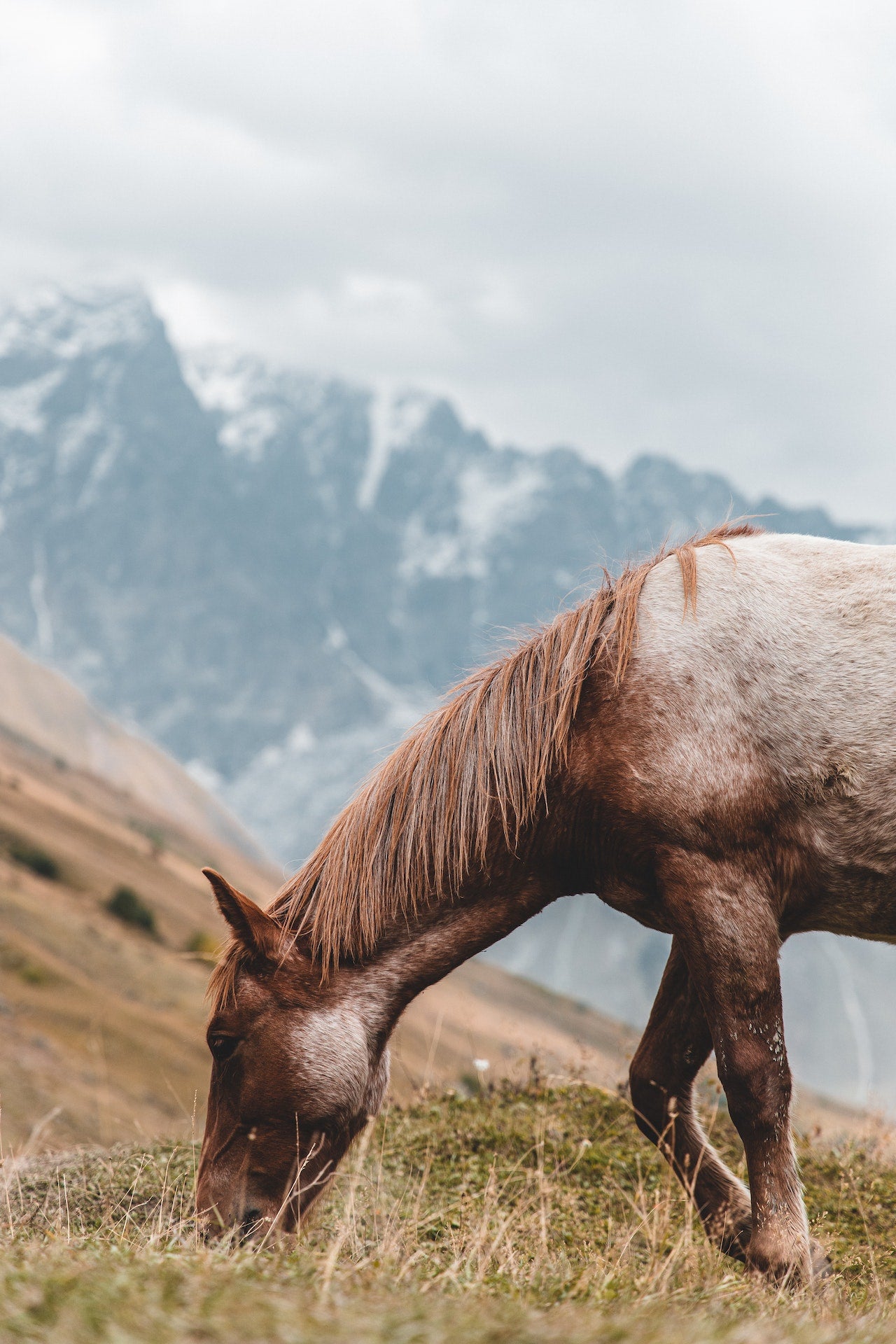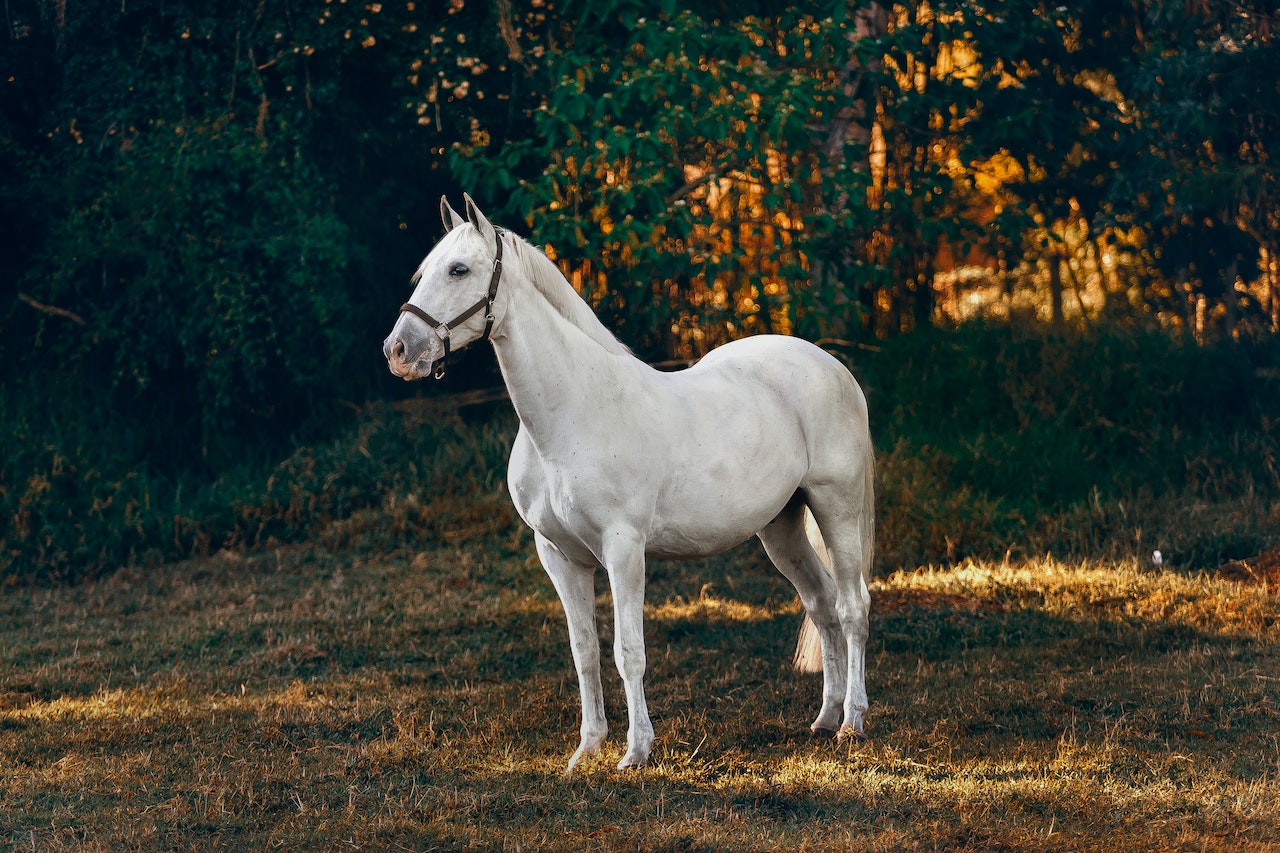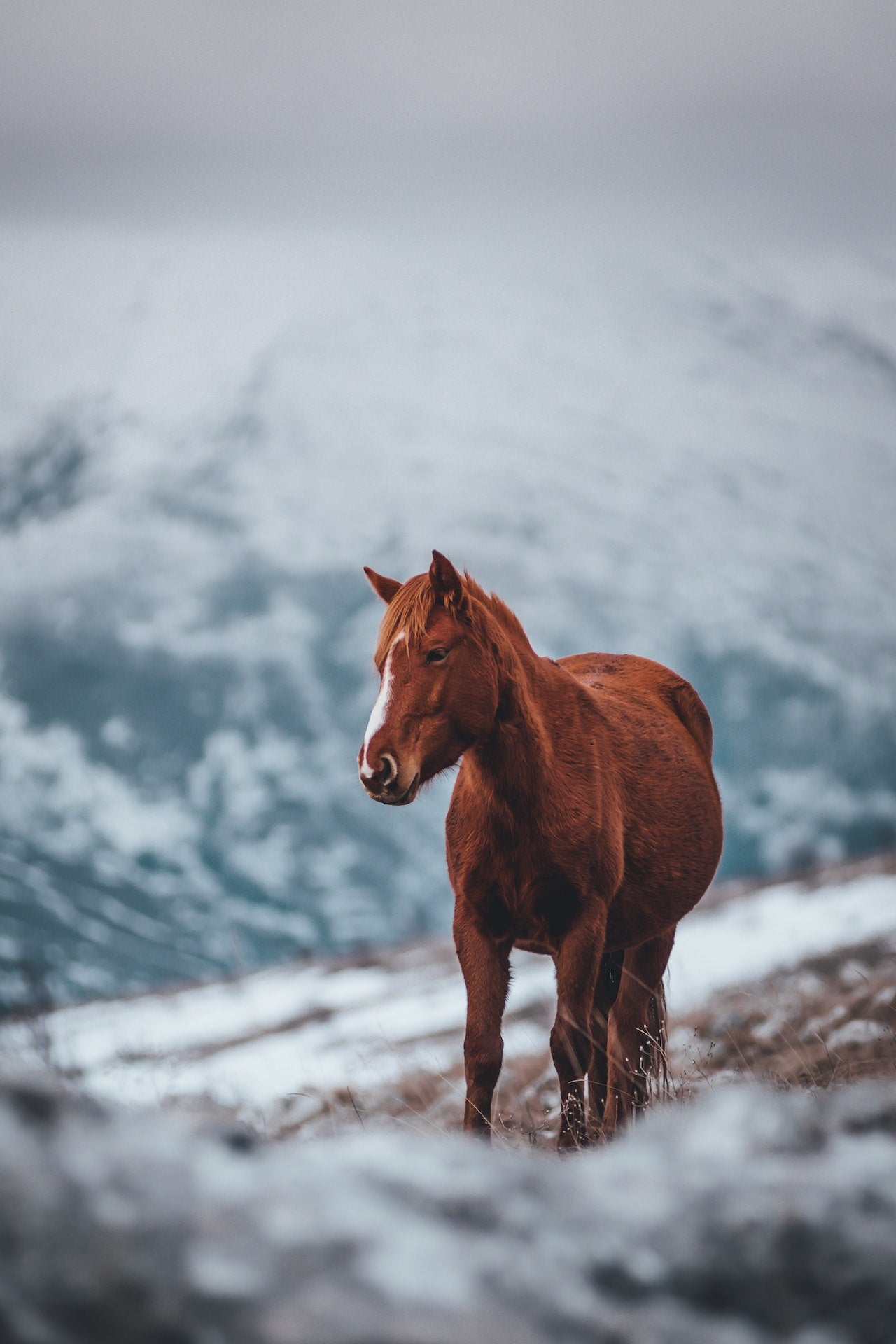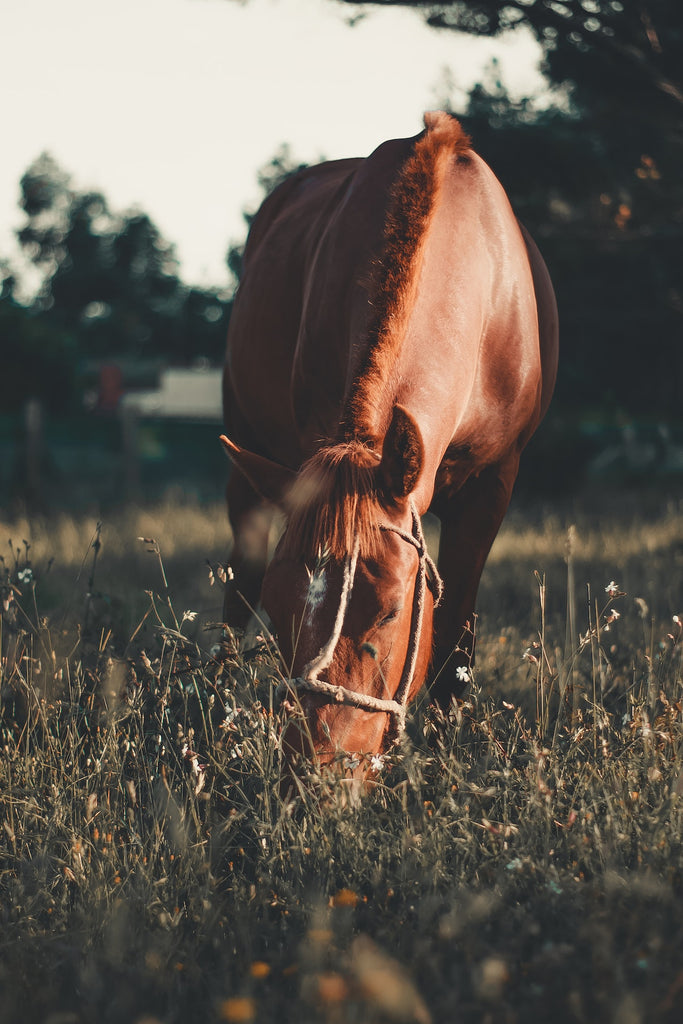
Equine Euphoria: The Astonishing Power of Ryegrass in Horse’s Diet
Providing a balanced diet is crucial for horses’ general health and well-being and is a crucial component of horse care. Ryegrass stands out as a fodder choice with exceptional nutritional value. Because they provide a wealth of advantages and a rich supply of crucial nutrients, the beautiful green blades of ryegrass have caught the attention of both horse owners and nutritionists.
Ryegrass attracts horses with its vivid green colour and luscious texture, but it also has a powerful nutritional punch. When it comes to meeting the nutritional needs of horses, ryegrass ticks all the right nutritional boxes from protein to energy levels, vitamins to minerals. To provide a secure and efficient feeding plan, it is essential to comprehend the various varieties of ryegrass and the factors to be taken into account.
In this article, we will go into the topic of feeding ryegrass to horses and see why it has grown to be a popular option for equestrian pasture. We will examine the nutritional value of ryegrass, whether it is suitable for horses, and the best ways to include it in their diets. Join us on this interesting adventure as we uncover the secrets of optimising your horse's diet and discover the marvels of ryegrass.
Can Horses Eat Ryegrass?
Yes, horses can eat ryegrass in moderation. Ryegrass is a popular fodder choice for horses and is frequently seen in horse pastures. It is a nourishing grass that offers horses exceptional grazing chances. It's crucial to remember that there are several forms of ryegrass, and not all of them are safe for horses.
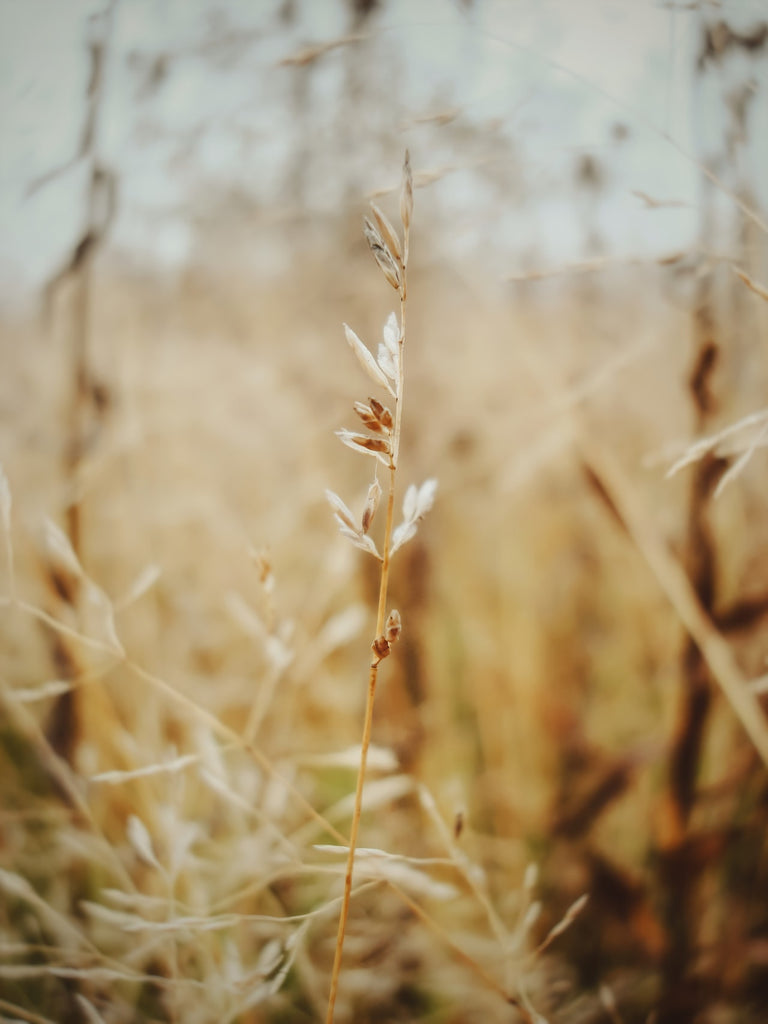
Ryegrass
Ryegrass is a cool-season grass of the genus Lolium. Considering how savoury and nourishing it is, it is frequently grown as feed for animals, particularly horses. The fast growth and rich, green leaves of ryegrass make it a popular option for silage, hay, and pastures.
Although there are various varieties of ryegrass, annual ryegrass (Lolium multiflorum) and perennial ryegrass (Lolium perenne) are the two that are most frequently utilised as feed. Annual ryegrass is a plant that goes through its whole life cycle in a single year, whereas perennial ryegrass is a plant that keeps growing year after year.
With a balanced combination of protein, energy, vitamins, and minerals, ryegrass is incredibly nutrient-dense. It is particularly prized for its high protein content, which promotes muscle growth and general horse growth. Ryegrass is also palatable and very simple to digest, making it a desirable choice for horse feed.
Feeding Ryegrass to Horses
Here are some essential factors to consider when giving ryegrass to horses.
Introduction
It's important to gradually introduce ryegrass into a horse's diet. The horse's digestive tract can be upset by abrupt food changes, which can result in problems like colic. Ryegrass can be offered in modest amounts at first, then progressively increased over the course of a few days or weeks.
Suitability and Quality
There are several ryegrass species, and picking the right ones for horses is crucial. Because of its palatability and nutritional value, horse pastures frequently employ perennial ryegrass (Lolium perenne). Ensure the ryegrass you give your horse is of high quality and free of weeds, mould, and poisons.
Nutritional Balance
Ryegrass is a nutrient, but it's crucial to take the horse's diet as a whole into account. Horses have unique dietary needs, which include protein, carbs, fibre, vitamins, and minerals. Ryegrass can help meet these requirements, but to establish a balanced nutritional profile, it's crucial to evaluate the whole diet and add other forage sources, concentrates, or supplements as needed.
Individual Consideration
Every horse is distinct, with specific nutritional requirements and sensitivities. The ideal ryegrass feeding schedule should take into account factors including age, activity level, bodily condition, and medical issues.
Harvested Form
Hay or haylage can also be made from ryegrass. Forage's nutritional value must be maintained through proper harvesting and preservation methods. To avoid the formation of mould and the deterioration of nutrients, store ryegrass hay or haylage in a clean, dry environment.
Nutritional Benefits of Ryegrass for Horses
Fibre
Ryegrass meets the dietary fibre requirements of horses by supplying both soluble and insoluble fibre. Fibre is essential for fostering good gut function, keeping a healthy digestive tract, and avoiding digestive problems like colic. A sufficient fibre diet encourages the formation of volatile fatty acids, which provide energy for horses and helps with hindgut fermentation.
Energy
Horses may get a lot of energy from ryegrass. It includes fibre and carbs, including sugars, which are digested and turned into energy. The ryegrass' high energy content supports the horse's everyday activities, including exercise, development, and maintenance.
Proteins
The comparatively high protein content of ryegrass is well known for boosting muscular growth, tissue healing, and general growth in horses. A sufficient protein diet maintains the horse's musculoskeletal system and encourages good body condition.
Vitamins and Minerals
Several vitamins and minerals necessary for horse health may be found in ryegrass. It is an excellent source of vitamin E, which helps muscular function and serves as an antioxidant. Additionally, ryegrass has different levels of vitamins A, B, and K. Additionally, it includes trace elements like copper, zinc, and selenium as well as important minerals like calcium, phosphorus, potassium, and magnesium.
Potential Risks of Feeding Ryegrass to Horses
Nitrate Accumulation
Ryegrass may amass nitrates in specific situations, such as a drought or after fertilisation. Nitrate toxicity in horses can result in methemoglobinemia (a blood condition) and other health problems.
High Sugar Content
The amount of sugar in ryegrass can vary, and some kinds may have more sugar than others. Ryegrass consumption should be carefully controlled in insulin-resistant horses with metabolic conditions or prone to laminitis. High sugar consumption may aggravate these illnesses and cause health problems.
Ergot Alkaloid
Ergot contamination, which happens when a fungus infects the seed heads, can affect ryegrass. The fungus produces ergot alkaloids, which can be hazardous to horses. Ryegrass should be carefully inspected visually for any indications of ergot contamination, and diseased parts should never be fed to horses.
Indigestibility in Mature Plants
Ryegrass tends to become more fibrous and less digestible as it matures. Mature ryegrass may be less nutrient-dense and more difficult for horses to digest adequately.
Concluding Words
For equines to be healthy, a well-balanced diet must be maintained. Forage choices, concentrates, and vitamins can be added to ryegrass as needed to provide horses with a complete and nutritionally balanced diet. We can ensure that ryegrass benefits our equine friends' general health by being mindful of their nutritional requirements and monitoring their condition.

